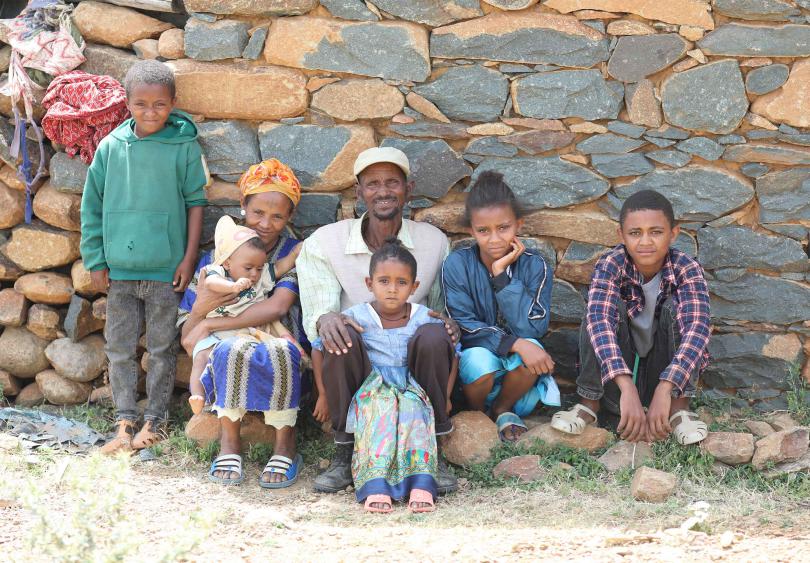SEEDS OF HOPE: Hadgu’s Story

Story summary
Hadgu is a 64-year-old father of five children, including three daughters and two sons. He resides in the central Tigray region. Hadgu served in the military during the TPLF's fight against the Derg regime before the latter's ascension to power in 1991, receiving an honorable medical discharge due to a serious back injury sustained in the line of duty.
The hardworking farmer, Hadgu, was also affected by the two-year Northern Ethiopian conflict. In October 2023, during the second intense battle between the ENDF and the TPLF near his home, he sent all his children elsewhere for safety while remaining at home to guard a nearby "Chinese road construction camp" which was later used as a military base. However, his decision to stay and secure the camp for payment to support his family resulted in severe beatings after being accused of gathering military intelligence. He also witnessed the death of a neighbor under similar accusations.
Hadgu reveals his past experiences, saying he spent several months hearing heavy bombardments and screams from injured soldiers across his village where intense fighting occurred.
After a peace agreement months later, Hadgu brought his family home and resumed farming with support from Save the Children. Save the Children provided Hadgu and other selected returning farmers capable of farming with improved teff seedlings and ongoing advisory services.
Now, Hadgu is preparing to harvest of his efforts over the past three months caring for his crops. While returnees strive for normalcy, critical needs remain unaddressed to transition them from subsistence to resilient livelihoods. They still lack sufficient food and access to safe water, traveling miles for unsafe river water for daily use.

Hadgu's story in his own words (Quotes)
"It is truly gratifying to return to my agricultural life with my family alive and well. Fortunately, the return of my family home coincided with the onset of the rainy season and assistance from Save the Children in the form of improved teff seeds."
"The challenges faced at this stage of recovery are immense. It has been difficult to properly feed my children." However, I remain optimistic about brighter days ahead for my family. I gain renewed energy when seeing our ready-to-harvest farms, which are now broad and bountiful. I am grateful for the meaningful support we have received through such projects. "
"While it is easy to discuss past hardships in hindsight, the war left deep scars that made recovery a long and difficult process. Many residents in my area still lack access to safe water and must travel great distances to collect water from rivers due to destroyed infrastructure."
"We are exposed to water-borne illnesses and malnutrition, which the under-resourced local clinics struggle to adequately treat. Our requests for additional support stem from starting virtually empty-handed in our efforts to restore our previous, graceful agricultural lifestyle prior to the conflict."
Background / Project information
Save the Children has been providing humanitarian assistance in the Tigray region since the Northern Conflict started in late 2020. Taking the leading role in providing cash transfers for the IDP, NFI kits, medicine, and mobile health clinic services, including child vaccinations, and the provision of inclusive education for children in the IDP centers, Save the Children has been there with its uninterrupted support to communities affected by conflict.
With the provision of continuous support and follow-ups in collaboration with the regional Bureau of agriculture and Zonal as well as Woreda agriculture experts and Development Agents (DA), there has been change among the residents while they started to see the results of their three months efforts. This project benefited more than 2,798 households who had land plots of 0.5 hectares or more. Swedish Solidarity provided funding for the resilience project, which involved distributing improved seeds of Teff, Wheat, and Chickpea to two Woredas and four Kebeles of Central Tigray. This is one of Save the Children's flagship pilot initiatives that has the potential to improve the lives of the communities significantly and permanently by restoring them to their pre-conflict state.




